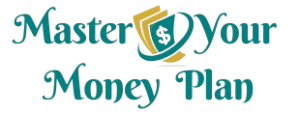
The Importance of Financial Literacy: How Mastering Money Management Can Transform Your Life
Imagine this: You’re stuck in a cycle of debt, constantly feeling stressed about bills, and unsure where your money goes each month. It’s a scenario far too many people face—and it’s not because they don’t work hard. The problem? They lack financial literacy.
The importance of financial literacy goes beyond just managing money—it’s about gaining control over your financial future. Without the right knowledge, it’s easy to fall into traps that drain your savings or lead to unnecessary debt. But when you understand how to budget, save, invest, and manage debt wisely, everything changes.
In this article, we’ll dive into how mastering money management can completely transform your life. By the end, you’ll not only have the tools to make smarter financial decisions, but also the confidence to take charge of your financial future. Ready to take control? Let’s explore the world of financial literacy and unlock the power of better money management!
Table of Contents
ToggleWhat is Financial Literacy? Breaking It Down
Financial literacy is the ability to understand and manage your money in a smart, effective way. It involves more than just knowing how to budget—it’s about having the knowledge and confidence to make informed decisions that impact your financial well-being. Whether it’s saving for an emergency, investing for the future, or managing debt, financial literacy equips you with the tools to take control of your finances.

So, what exactly does financial literacy cover? Here are the key components:
Budgeting: The Foundation of Financial Control 
A solid budget is the first step in managing your finances. It helps you understand where your money is going each month and allows you to allocate funds for savings and spending wisely. By tracking your income and expenses, you can avoid overspending and stay on top of your financial goals.
Saving: Building Your Financial Safety Net 
Financial literacy teaches you the importance of setting aside money for both short-term and long-term needs. Whether it’s building an emergency fund or saving for retirement, knowing how to save efficiently is essential. A simple rule is the 50/30/20 rule: 50% of your income goes to needs, 30% to wants, and 20% to savings.
Investing: Growing Your Wealth Over Time 
Investing is a powerful tool to build wealth, but many people shy away from it due to confusion. Financial literacy helps you understand the different types of investments—stocks, bonds, real estate—and how they can work for you. The earlier you start investing, the more time your money has to grow.
Debt Management: Paying Off What You Owe Smartly 
Debt can be overwhelming, but with financial literacy, you can manage it effectively. Learning how to prioritize high-interest debts, like credit cards, can save you a significant amount of money in the long run. It’s also important to understand how credit works and the impact of your credit score.
Financial Planning: Setting and Achieving Your Financial Goals 
Finally, financial literacy teaches you how to create a financial plan. Setting clear, realistic goals allows you to focus on what truly matters—whether it’s buying a home, paying off student loans, or preparing for retirement. A good plan acts as a roadmap, helping you stay on track and make adjustments along the way.
How Financial Literacy Improves Your Financial Health
When you’re financially literate, you have the power to take control of your finances, reduce stress, and make decisions that positively impact your long-term financial well-being. It’s not just about crunching numbers—it’s about making smarter choices, avoiding common financial mistakes, and setting yourself up for a secure future. Here’s how financial literacy directly improves your financial health:
Avoiding Financial Mistakes 

One of the biggest benefits of financial literacy is that it helps you avoid common pitfalls that many people fall into. For example, not understanding how compound interest works can lead to credit card debt spiraling out of control. When you know how to read your financial statements, prioritize payments, and avoid unnecessary spending, you can prevent these issues from even happening. A small mistake can cost you big—being financially literate helps you steer clear of them.
Building a Strong Savings Foundation 

Financial literacy teaches you the importance of saving regularly, even when things feel tight. With the right knowledge, you can easily set up a savings plan that works for your lifestyle. Whether it’s an emergency fund or saving for major goals like a home or retirement, you’ll know how to start, how much to set aside, and where to keep your savings for the best growth.
Growing Your Wealth Through Smart Investments 
One of the most powerful ways financial literacy improves your financial health is through investing. Understanding investment options like stocks, bonds, and mutual funds helps you grow your wealth over time. Being financially literate gives you the confidence to start investing early, make wise choices, and take advantage of compound growth. Whether you’re investing in your 401(k) or diversifying your portfolio, financial literacy helps you make informed decisions that build long-term wealth.

Managing Debt Effectively 

Managing debt is a major part of financial health, and financial literacy provides the tools to handle it wisely. Knowing the difference between good debt (like a mortgage) and bad debt (like credit card debt) can help you prioritize paying off high-interest loans first. Financial literacy also helps you understand how your credit score works and how to improve it, which in turn leads to lower interest rates and more favorable loan terms.
Setting and Achieving Financial Goals 

Finally, financial literacy empowers you to set clear, achievable financial goals. With the right knowledge, you can break down big goals (like buying a house or retiring early) into manageable steps. Whether you’re saving for a vacation or creating a long-term wealth plan, financial literacy helps you stay on track, make adjustments, and celebrate your progress along the way.
Key Components of Financial Literacy
To truly master money management, there are several key components of financial literacy that you need to understand. Each of these components plays a critical role in your ability to make informed, confident financial decisions. Let’s break them down into easy-to-digest parts so you can start applying them today.

Budgeting: The Foundation of Financial Control 
Budgeting is the cornerstone of any solid financial plan. It’s about knowing exactly how much money you’re earning, spending, and saving. A well-crafted budget helps you prioritize needs over wants, set realistic financial goals, and track your spending so you don’t end up in debt.
Actionable Tip: Start with the 50/30/20 rule: 50% of your income goes toward essentials (like rent and bills), 30% toward non-essentials (like dining out or entertainment), and 20% into savings or debt repayment.
Saving: Building Your Financial Safety Net 
Saving isn’t just for a rainy day—it’s essential for financial stability. Financial literacy teaches you how to save effectively, whether it’s putting money aside for an emergency fund, short-term goals like vacations, or long-term goals like retirement.
Actionable Tip: Set up automatic transfers to a savings account so you don’t forget. Even saving a small percentage of your income regularly can add up over time and provide a cushion when unexpected expenses arise.
Investing: Growing Your Money for the Future 
Investing is one of the most powerful ways to build wealth, and understanding it is a critical part of financial literacy. By investing your money in stocks, bonds, mutual funds, or real estate, you can grow your wealth through the power of compound interest and market growth.
Actionable Tip: Start small by contributing to a retirement account (like a 401(k) or IRA). As your understanding grows, you can diversify your investments to balance risk and reward.
Debt Management: Understanding and Reducing Debt 
Debt is a common part of life, but not managing it effectively can lead to financial stress. Financial literacy helps you understand the difference between good debt (e.g., a mortgage) and bad debt (e.g., high-interest credit cards). It also teaches you how to pay off debt more efficiently.
Actionable Tip: Focus on paying off high-interest debt first, such as credit cards. Consider using the “debt avalanche” method (paying off the highest-interest debt first) or the “debt snowball” method (starting with the smallest debt and working your way up).
Financial Planning: Setting Goals and Making a Roadmap 
Financial planning is about setting clear, achievable goals and making a step-by-step plan to reach them. Whether it’s buying a home, sending a child to college, or retiring early, financial planning gives you direction and purpose with your money.
Actionable Tip: Break your goals into smaller, actionable steps. Create a timeline and adjust as necessary—life happens, but having a plan will keep you focused.
Financial Literacy in Action – Practical Tips
Now that you understand the importance of financial literacy and its key components, let’s put that knowledge into action. These practical tips will help you apply what you’ve learned to your daily life, making money management easier and more effective. Let’s dive in!

Create Your Financial Plan: A Step-by-Step Guide 
A financial plan is your roadmap to financial success. It helps you define your goals and set clear steps to achieve them.
Actionable Tip:
- Set Specific Goals: Start by identifying your financial goals. Want to save for a house? Build an emergency fund? Retire early? Be specific about what you want and by when.
- Break It Down: Break your goals into smaller, manageable steps. For example, if your goal is to save $10,000 for an emergency fund, aim to save $1,000 per month.
- Track Your Progress: Regularly review your financial plan to track your progress. This will help you stay on track and make adjustments as needed.
Smart Saving and Investing Tips 

Saving and investing are two sides of the same coin when it comes to growing your wealth. Here’s how to make both work for you.
Actionable Tip:
- Automate Your Savings: Set up automatic transfers to your savings account so you don’t forget to save. Even a small amount, like $50 a month, can add up over time.
- Start Investing Early: The earlier you start, the more your money can grow. Begin with low-cost, diversified options like index funds or a retirement account.
- Reinvest Your Earnings: If your investments earn dividends or interest, reinvest them. This allows your money to compound, growing even faster.
How to Build Financial Confidence 

One of the biggest challenges for many people is feeling confident with their money. But by taking small steps to improve your financial literacy, you’ll soon feel more in control of your financial future.
Actionable Tip:
- Learn Continuously: The more you learn about managing money, the more confident you’ll feel. Read books, listen to podcasts, and follow financial blogs to keep learning.
- Start Small: Don’t try to overhaul everything at once. Start with budgeting, then gradually work your way up to saving, investing, and debt management.
- Ask for Help: If you’re feeling unsure, don’t hesitate to consult a financial advisor. They can provide expert advice and guide you toward the best financial decisions.
The Consequences of Not Having Financial Literacy
While financial literacy offers many benefits, the lack of it can have serious consequences. When you don’t understand how money works, it’s easy to make decisions that can negatively impact your financial health for years to come. Let’s explore the potential consequences of not being financially literate.

Falling Into Debt 
One of the most common pitfalls of financial illiteracy is accumulating unnecessary debt. Without a clear understanding of how credit works, it’s easy to fall into the trap of maxing out credit cards or taking on loans without considering the long-term impact.
Consequences:
- High-interest rates can make paying off debt much harder.
- Debt can snowball, leaving you in a cycle of payments that feel impossible to escape.
- Missed payments can damage your credit score, making it harder to secure future loans.
Missed Savings Opportunities 

Without financial literacy, many people fail to save properly. They may neglect to set up an emergency fund or fail to invest for their future. The result? They’re left financially vulnerable when unexpected expenses arise.
Consequences:
- Lack of an emergency fund means you’re unprepared for life’s surprises, like medical emergencies or job loss.
- Failing to invest means you miss out on growing your wealth over time.
- You may struggle with long-term goals like buying a home or retiring comfortably.
Financial Stress and Anxiety 
When you don’t understand how to manage money, it can create constant stress and anxiety. Constantly worrying about bills, debt, or making ends meet takes a toll on your mental health and well-being.
Consequences:
- Financial stress can lead to burnout and affect other areas of your life, like relationships and work.
- Anxiety about money can prevent you from making clear, rational decisions.
- Without a financial plan, you may feel like you’re constantly reacting to situations rather than being proactive.
Missed Investment Opportunities 
Not understanding how to invest properly means missing out on growing your wealth. Many people avoid investing because they fear losing money or don’t know where to start. As a result, they miss out on the benefits of compounding interest and the potential to grow their financial security.
Consequences:
- Sticking to traditional savings accounts with low-interest rates means your money isn’t working for you.
- Over time, inflation can erode the value of your savings if you’re not investing in assets that grow.
- You miss out on building long-term wealth and achieving financial independence.
Inability to Achieve Financial Goals 
Without financial literacy, it’s nearly impossible to set and achieve meaningful financial goals. Whether it’s buying a home, paying off debt, or saving for retirement, a lack of financial understanding makes it difficult to take the necessary steps to reach those goals.
Consequences:
- You may struggle to create a financial plan or track your progress toward your goals.
- Goals like buying a house or retiring comfortably may seem out of reach without proper planning and savings.
- You risk remaining stuck in your current financial situation without the knowledge needed to improve it.
How to Improve Your Financial Literacy Today
Improving your financial literacy doesn’t have to be overwhelming. In fact, it’s easier than you think. By taking small, actionable steps, you can quickly gain the knowledge you need to make smarter financial decisions. Let’s explore some simple and effective ways to boost your financial literacy today.

Start by Setting Financial Goals 
Before diving into the details of budgeting, saving, or investing, take a moment to think about your financial goals. What do you want to achieve? Whether it’s building an emergency fund, paying off debt, or saving for a vacation, having clear goals gives you direction and purpose.
Actionable Tip:
- Write down your financial goals and break them into smaller, manageable steps.
- Prioritize your goals and tackle them one at a time for better focus.
Read Books and Listen to Podcasts 

There are countless resources available to help you understand personal finance. Books and podcasts are an excellent way to learn from experts and gain new perspectives on money management.
Actionable Tip:
- Start with beginner-friendly books like The Total Money Makeover by Dave Ramsey or Rich Dad Poor Dad by Robert Kiyosaki.
- Tune into finance podcasts like The Dave Ramsey Show or The Financial Independence Podcast to hear real-life advice.
Use Financial Tools and Apps 

There are many tools and apps available to help you track your spending, create a budget, and even invest. These tools can make managing your finances easier and more organized.
Actionable Tip:
- Try budgeting apps like Mint or YNAB (You Need A Budget) to keep track of your spending and savings goals.
- Use investment platforms like Robinhood or Acorns to start investing with as little as $5.
Take Online Courses 

Online courses are a great way to deepen your understanding of personal finance at your own pace. Many courses are free or low-cost, making it easy to fit learning into your schedule.
Actionable Tip:
- Enroll in free courses on websites like Coursera or Udemy, which offer courses on everything from budgeting to investing.
- Look for courses that offer practical, hands-on advice you can apply to your own financial situation.
Consult a Financial Advisor 

If you’re feeling overwhelmed or unsure about where to start, a financial advisor can provide personalized advice based on your goals and financial situation.
Actionable Tip:
- Schedule a consultation with a certified financial planner (CFP) to get expert advice on managing your money.
- Look for a fee-only advisor to avoid conflicts of interest that might arise from commission-based financial advice.
Practice Financial Habits Every Day 

Improving your financial literacy isn’t just about learning new things—it’s also about making smarter choices every day. The more you practice good financial habits, the more confident you’ll become.
Actionable Tip:
- Track your spending for a month to identify areas where you can cut back.
- Set aside a percentage of your income for savings each pay period, even if it’s just a small amount.
Take Control of Your Financial Future
Mastering financial literacy is the key to transforming your financial life. By understanding how to budget, save, invest, and manage debt, you’re not just learning how to handle money—you’re empowering yourself to make confident, informed decisions that set you up for long-term success.
As you’ve seen, the consequences of financial illiteracy can be serious, but the good news is that it’s never too late to start learning. Whether you’re setting goals, reading books, using apps, or seeking advice, every small step you take will bring you closer to financial freedom.
The road to financial empowerment is a journey, but with the right knowledge and consistent effort, you can achieve your financial goals and enjoy the peace of mind that comes with mastering money management. So, take the first step today—start learning, stay committed, and watch as your financial future becomes brighter and more secure.

Frequently Asked Questions (FAQs)
1. What is financial literacy, and why is it important?
Financial literacy is the understanding of how money works—how to manage, save, invest, and grow your finances. It’s important because it helps you make informed decisions, avoid debt, and plan for a secure financial future, ensuring you are in control of your money instead of the other way around.
2. How does financial literacy help in debt management?
Financial literacy teaches you how to manage and reduce debt effectively by prioritizing high-interest loans, understanding credit, and creating a debt repayment plan. With this knowledge, you can avoid falling into a cycle of debt and make smarter financial decisions that help you pay off what you owe faster.
3. What are the key components of financial literacy?
The key components of financial literacy include budgeting, saving, investing, debt management, and financial planning. Mastering these areas allows you to take control of your finances, plan for the future, and avoid common financial pitfalls.
4. How can financial literacy improve my savings habits?
By learning how to budget effectively and prioritize savings, financial literacy helps you set clear goals and put money aside regularly. Whether it’s for an emergency fund, a vacation, or retirement, you’ll know how to save consistently and efficiently, even if you have a tight budget.
5. Can financial literacy help me invest smarter?
Yes, financial literacy helps you understand the basics of investing, such as the different types of investments, risk vs. reward, and the power of compound interest. With this knowledge, you can make informed decisions about where to put your money to work for you, whether it’s in stocks, bonds, or retirement accounts.
6. What happens if I don’t improve my financial literacy?
Without financial literacy, you may struggle with managing money, fall into debt, miss out on investment opportunities, and face financial stress. Over time, this can hinder your ability to achieve long-term financial goals, like buying a house or retiring comfortably, and could lead to ongoing financial insecurity.
7. How can I start improving my financial literacy today?
Start by reading books, taking online courses, and using financial apps to track your spending and savings. Setting clear financial goals and practicing budgeting are also great first steps. The more you learn and apply, the easier it becomes to make confident financial decisions.
8. What are some simple tips for building financial confidence?
Building financial confidence starts with gaining knowledge. Educate yourself, track your spending, and start saving even small amounts regularly. By sticking to a budget and making informed decisions, you’ll feel more in control of your money and empowered to reach your financial goals.




